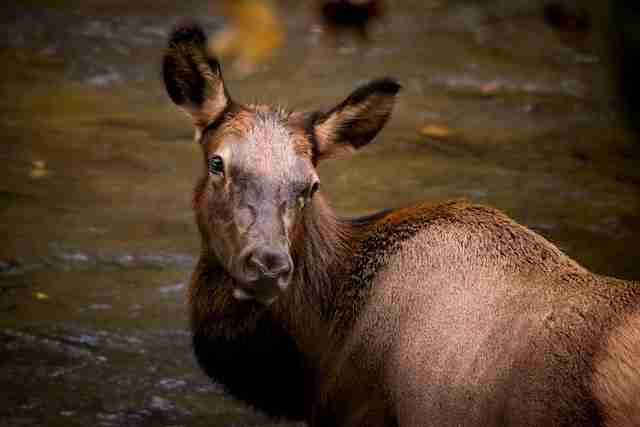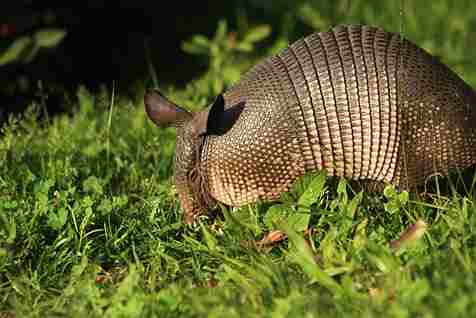Do Alligators Growl? (5 Facts You Should Know)
When it comes to communication, alligators do not look like the most expressive critters. But they have their own way of passing information. Sometimes, it may be through a hissing sound and sometimes, it may be through a loud bellow. If you’ve ever seen an alligator letting out a howl, you may be wondering if they actually growl. So, do alligators growl?
Yes, alligators growl (also known as a bellow). This sounds like a rumbling motorcycle and is produced when the beast sucks in a lot of air into its lungs and blows it out to produce intermittent roars.
Despite lacking vocal cords, gators are extremely vocal animals. So besides growling or bellowing, they make other sounds such as hissing, clicking, and chirping (by baby alligators). An alligator’s growl is usually to find a mating partner but it can mean other things.

Can alligators growl?
Yes, alligators can growl. An alligator’s growl or bellow is a guttural vocalization by the animal and is comparable to the rumbling sound of a motorcycle that is far away.
Like other sounds made by a gator, a growl is essentially used for communication. Often, it’s a call made by the alligator for a mate.
In general, animals growl to show aggression, play or want to mate. Whatever the reason, the idea is that growling is a form of communication.
Growling is particularly common among crocodilians, canines, bears, horses, and felines. In fact, dogs and cats are most notorious for growling.
A dog’s growl, generally, is a friendly sound. It’s often a sign to back off or to show they don’t like you.
Why do alligators growl? (Alligator growl meaning)
Let’s take a look at some possible reasons why gators growl or bellow.
To communicate their body size
Studies show that one of the reasons gators growl is to communicate their size to each other. This experiment was carried out on the Chinese alligator. It was discovered that the frequency of the sound (growl) made by the alligator correlated with their size. In other words, the deepest sounds were made by the largest alligators in the group. This sound-to-size code is also observed in other reptiles such as crocodiles as well as birds.
To attract a mate
The second reason is a result of the first one. Gators use growling to find a mate.
During the breeding season, males growl to communicate their size when looking for a mate. When this happens, the female gators will often look for the deepest call from the biggest gator.
The growls or bellows from the males have an infrasonic component that often causes the water around them to dance and ripple. In most cases, it’s usually the big male alligators that growl. They can also snout and back rub, head-slap on the water surface, and blow bubbles. All these are just rituals to attract females. Females also respond in a similar way.
To resolve territorial disputes
Alligators also use growling to settle territorial disputes. A louder bellow or growl is usually a sign of dominance and a warning for other gators or animals to back off. In fact, females prefer big gators with the loudest growl as it shows they are powerful and they (the females) want that power to be transferred to their offspring.
Do female alligators growl?
Female alligators growl just like their male counterparts. This mostly occurs during the breeding season when the males are in search of potential mates. The female gators bellow in response to the males to signal their location and sex. This attracts potential mates, which are usually male gators of larger sizes.
Generally, female gators will only accept males that are bigger than themselves as mates. This is because larger gators have a better chance of winning territorial fights. Many times, male alligators avoid direct confrontations (which can be fatal) by communicating their body size to potential mates and rivals.
It is worth mentioning that female gators do not bellow as loud as male gators.
Do alligators growl at night?
It depends. Besides their breeding season, gators typically hunt at night. During this time, they will often remain still as they lie in wait for prey. Consequently, you will find them quiet.
However, when it’s time to mate (during the breeding season), gators can be quite noisy during nighttime. As earlier indicated, they will often growl to attract a mate (in the case of male gators) or signal their sex and location (in the case of female gators). When a male growls or bellows, it is to announce his presence or dominance of a territory or warn potential rivals.
Do alligators growl when angry?
Alligators can growl to show aggression but they hiss when they are angry or feel threatened. They usually make this sound to warn intruders, especially when you’re too close. Female gators often hiss when protecting their young from predators.
Thus hissing is a defensive or territorial behavior and is used to repel other gators as well as other animals trying to intrude on their space.
In summary, if you hear an alligator hiss, it’s letting you know it’s upset and is about to strike.
Conclusion: Do alligators growl?
To conclude, alligators typically growl to communicate their body size. This is used to attract females or declare territory. The frequency of their growl or bellow is proportional to their body size. So, bigger gators usually win the battle for potential mates.
Alligators are not the only animals that growl. Other animals that behave in a similar way include birds, black bears, leopards, badgers, gurnards, crocodiles, and even dogs. The sound may have slightly different expressions and meanings between each of these animals but in general, it’s a way to show dominance!
More Resources:
https://en.wikipedia.org/wiki/Growling
https://www.popsci.com/researchers-put-alligator-helium-see-why-they-make-noise/
https://www.wired.com/2015/03/creature-feature-10-fun-facts-american-alligator/





